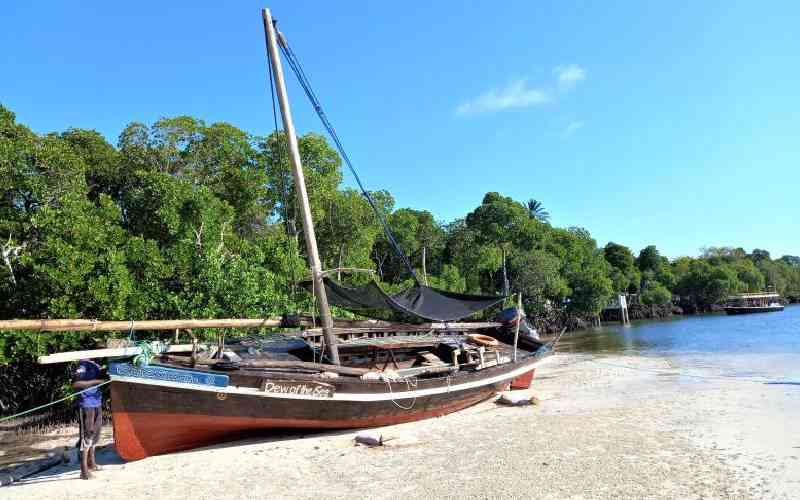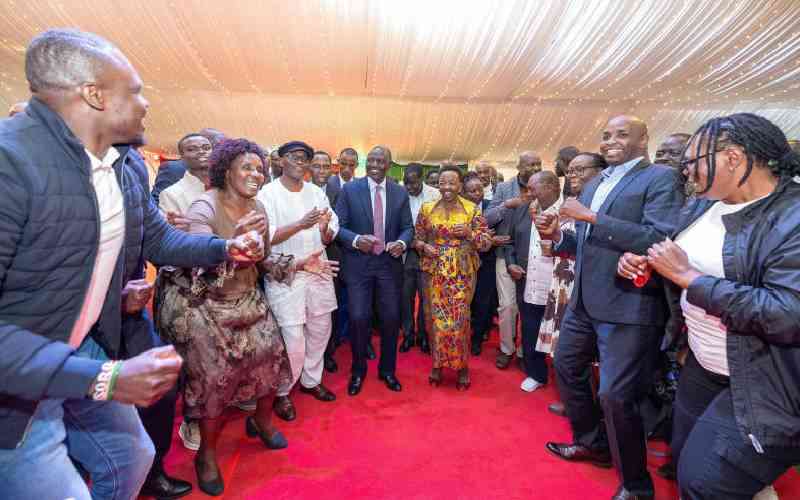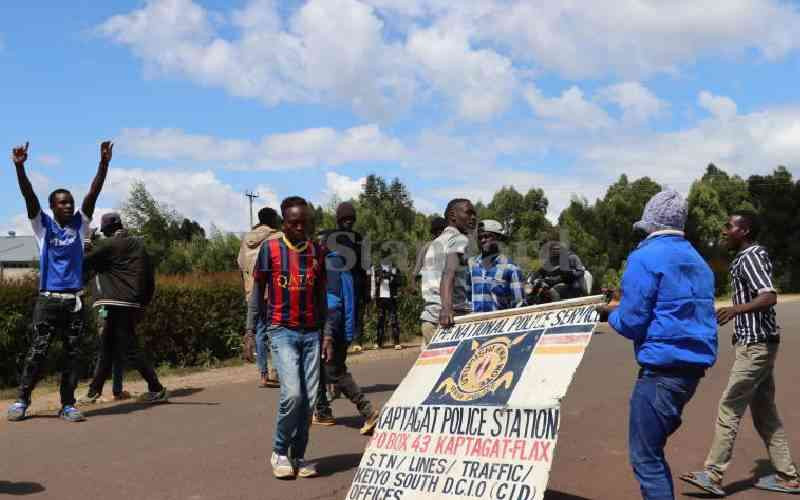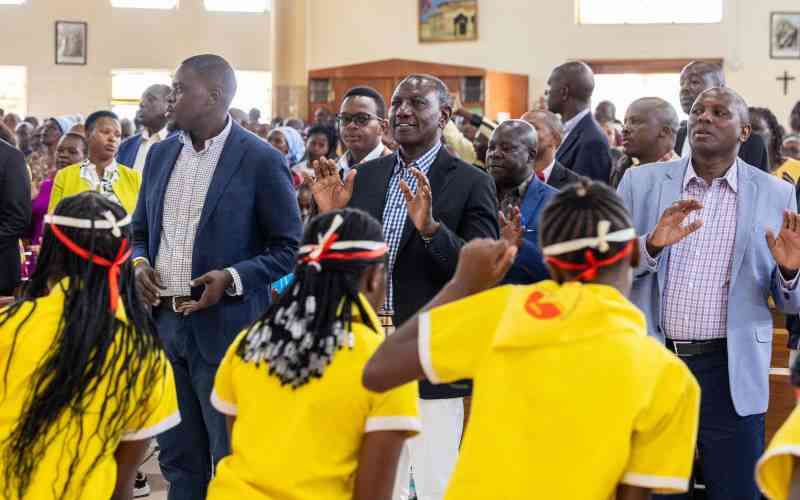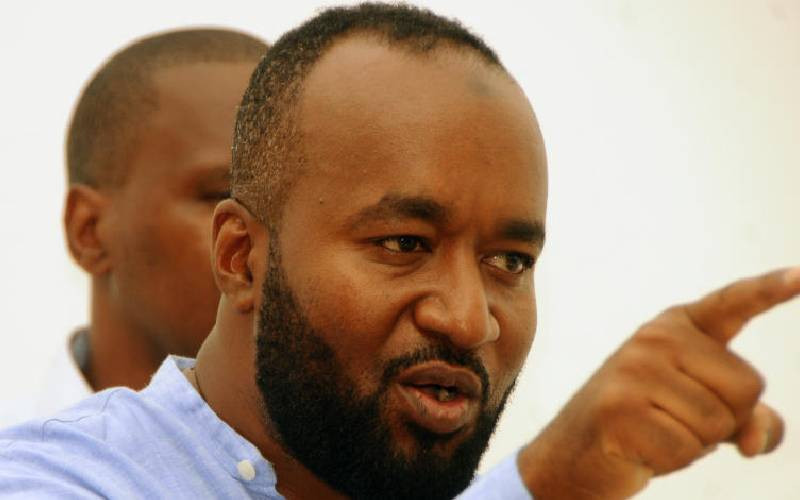Mino

The photograph on the stoop of the Kenyatta International Conference Centre, Nairobi, featured many men wearing grey suits and grim faces.
Nearly all of them wore frowns that revealed deep gulleys, perhaps from deep thoughts about that moment, now frozen in time, and how it would be read in days and years to come.
As far as I could tell, no one had a gun held to their head, so I couldn’t tell what had brought together so many unhappy faces in one frame.
Wiperman Kalonzo Musyoka skipped the photo-op, but he, too, wearing a long face, lamented about security cordons that resembled a state of the verge of capitulation, as youth-led protests led to a virtual shutdown.
The event at KICC seems like it was such a long time ago, even though it was only a week ago, because so much else has happened since. The event was culmination of a process that formally presented the findings of a joint government and opposition review, now gaining life as the National Dialogue Committee, which was to herald a conversation about salient issues that face the nation.
The events of this week clarify a different issue though, and which requires national attention: the on-going youth-led protests as a flashpoint of delayed or hijacked power transitions, and how generations of Kenyan youth have responded to this marginalisation.
- Voices in the digital storm: Youth protests a cry for attention or deeper mental health crisis?
Keep Reading
Different communities in traditional society had unique mechanisms for generational power transfer. It was called “ituika” in Central province and it took place every 25 years. The last “ituika,” scheduled for 1925, was disrupted by the establishment of the Kenya colony by the Brits.
A generation later, in late 1940s, young men who returned from World War II fomented an armed rebellion against the British, in what’s known as the Land and Freedom Army, popularly known as the Mau Mau.
Twenty years on, in 1961, another generation sang freedom at the Lancaster Conference which paved the way for Kenya’s independence from Britain, among them Tom Mboya, only 31, who had emerged as a national leader while still in his 20s. Unfortunately, he was assassinated before his 40th birthday.
In any case, Kenyan youth organising in politics in 1961 were outfoxed by older politicians, like Jomo Kenyatta, who invalidated the grievance held by the freedom fighters by upholding the sanctity of title deeds held by British settlers, without addressing the land question, and which festers to date.
Then came the 1990s, when another generation fronted the clamour for multiparty democracy. The opposition had so-called Young Turks, while the independence party, Kanu, assembled a lobby, YK ’92, whose architects were young politicians canvassing for maintenance of status quo, under the patronage of older politicians like Daniel arap Moi. Among them was a political novice, Willam Ruto.
Then, he was in his early 20s; today, he’s confronted by a generation of similar age, but without the baggage that has blighted and subverted any prospects of power transfer from one generation to the next.
While Gen-Z protesters see themselves as part of a larger community of young people of the world, with an estimated 400 million youngsters in Africa aged between 15 and 35, this does not mean the protesters are out of touch with the needs of their communities, whose empowerment they are championing.
For instance, the now-rejected Finance Bill 2024 was translated into nearly a dozen local languages, including Sign language, and was available online for free. The crowdsourced funding and volunteerism by medical workers or lawyers representing those arrested, herald a new type of political mobilisation that’s unprecedented in Kenya’s history.
It remains to be seen if the long-awaited “ituika,” delayed for 100 years, is finally at hand, or if this comity of elderly politicians cutting deals in the boardroom will subvert the aspirations of the youth, yet again.
 The Standard Group Plc is a multi-media organization with investments in media platforms spanning newspaper print
operations, television, radio broadcasting, digital and online services. The Standard Group is recognized as a
leading multi-media house in Kenya with a key influence in matters of national and international interest.
The Standard Group Plc is a multi-media organization with investments in media platforms spanning newspaper print
operations, television, radio broadcasting, digital and online services. The Standard Group is recognized as a
leading multi-media house in Kenya with a key influence in matters of national and international interest.

